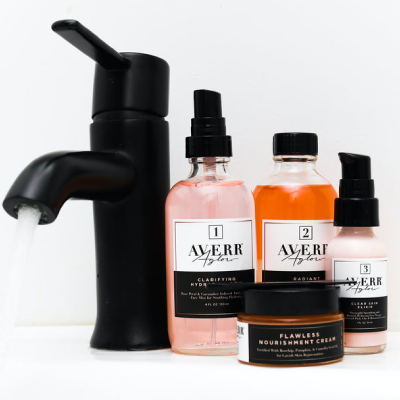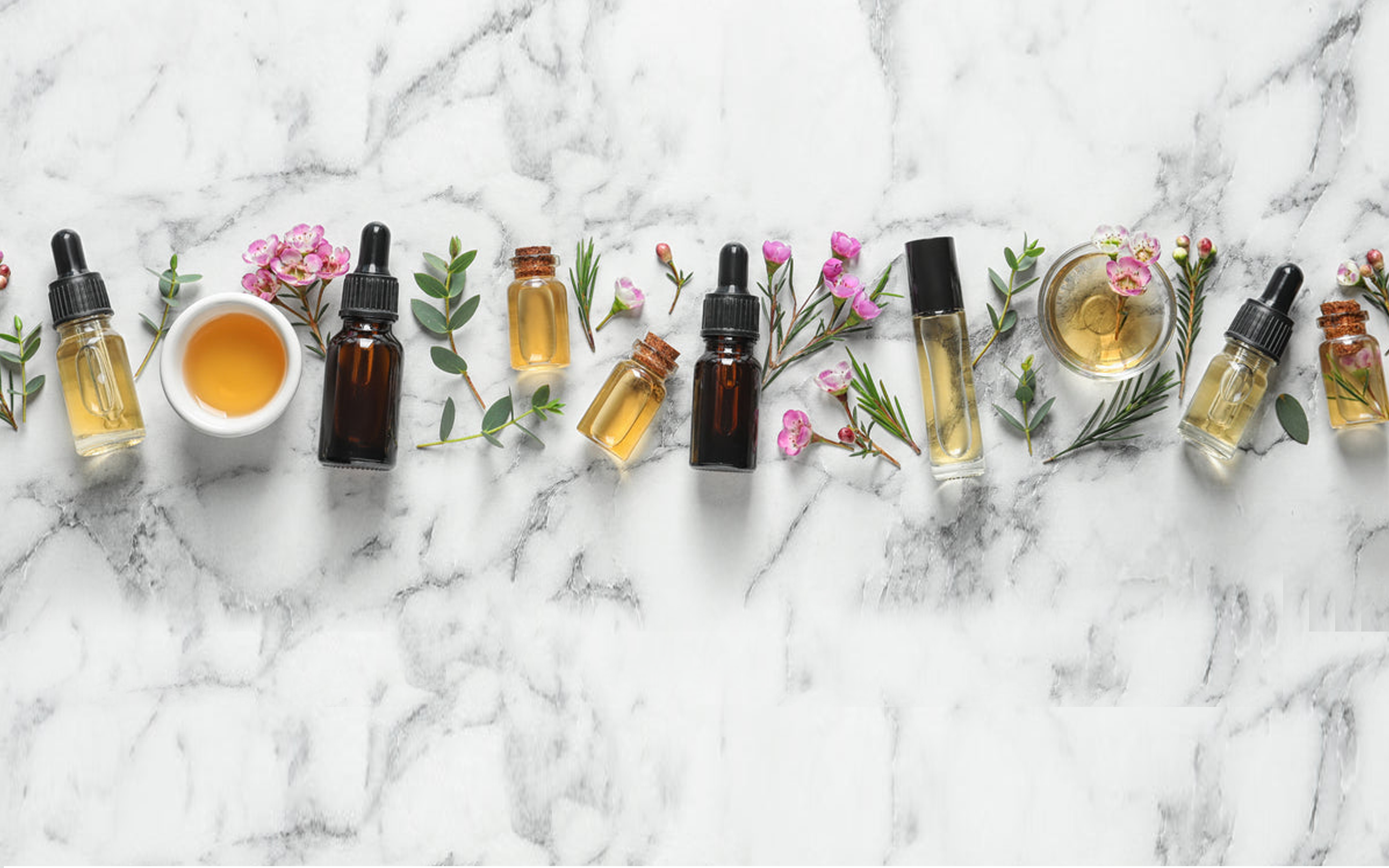
A Two Way Street: The Real Link Between Acne and Depression
Struggling with acne and your self-image can feel like standing on a rock in the middle of a stormy sea. You feel small, isolated, and alone, battered by crashing waves of shame and hopelessness. Your friends may try to throw you a lifeline, but they don’t always know how to reach you through the gale.
How many times have you declined an invitation to go out, feeling too self-conscious to have fun? “Acne isn’t that big of a deal,” your clear-skinned friends say, trying to cheer you up and convince you to come. Or, “Who cares what your skin looks like?”
But their comments just push you farther out to sea. It feels like they don’t understand you — or what you’re going through. They don’t realize that you’re dealing with more than just passing embarrassment. For someone living with acne every day, breakouts can weigh heavily on your mental and emotional health.
Can Acne Make You Depressed?
If you’ve been struggling with acne for years, you’re already qualified to answer this question. “Yes!” you’re probably screaming at your screen. “Yes, it absolutely can!”
And you know what? You’re right. Even science confirms it. Studies have shown that acne contributes to psychological trauma like depression and anxiety, with depression up to three times more common among people with acne. Plus, it can create other issues like self-esteem problems, social isolation, and body dissatisfaction.
It’s no surprise. How often have you felt “body dissatisfaction” after a persistent or unexpected breakout? How can you not wrestle with self-esteem problems when you’re embarrassed to leave the house without spending an hour covering your face with careful makeup?
Then compound your anxiety with a constant stream of airbrushed models and Photoshopped beauty standards. Everywhere you look, you’re presented with a standard of beauty that feels distant and impossible to achieve.
If the appearance of your skin is contributing to depression, you aren’t silly, or weak, or overreacting. And you’re also not alone.
Jocelyn’s Story: I Was Depressed and My Acne Was to Blame
In college, I was ecstatic when a cute boy asked me on a date. That night I dressed up, curled my hair, and put on a moderate amount of makeup, thinking,
Guys don’t like girls with a cake face.
But from what I’d heard, they didn’t like girls with acne either, so I tried to find a midway point.
We went out to dinner, and I ordered a soda. The server had barely left the table before my date looked at me and said, “You know, if you stop drinking soda, your acne will clear up.”
I was mortified. I tried to keep up appearances throughout dinner, but I ended the night crying into my pillow. I stopped dating for a while after that.
Does Depression Cause Acne?
The possibility of feeling depressed by your troubled skin may seem obvious. And there’s no question: acne can cause depression. But what about the other way around? Can depression cause acne?
The link between your mind and your skin is more intertwined than you might have thought. From the very moment you’re conceived, your skin and brain share a common origin in the outer layers of your embryo. And even as you get older, this connection continues to show itself.
Just think about how your skin reacts in an embarrassing situation. Remember that immediate hot tingling sensation as all the blood rushes to your face? That blush is responding to what’s going on in your mind, showing how a simple train of thought can instantly manifest itself through your skin.
In the same way, your state of mind can influence the clarity of your complexion. Stress and depression won’t single-handedly cause breakouts, but if you are already acne-prone, they can, unfortunately, make your breakouts worse with a combination of both physical and emotional effects.
Physically, depression can:
- Increase your oil production, making your skin seem greasy and contributing to clogged pores.
- Trigger inflammation, which increases acne redness and swelling.
- Weaken your skin barrier, leaving your skin vulnerable to harmful bacteria and contaminants.
- Slow healing, so your stubborn breakouts linger longer.
- Irritate other skin conditions like psoriasis and eczema. (Stress is the most frequently blamed trigger of psoriasis flare-ups, beating diet, weather, and medication.)

Have you ever been feeling low and skipped your usual self-care? Maybe you found yourself thinking, “What’s the point?” or “I’m just too tired.” This is your depression at work.
Emotionally, depression can:
- Undermine your motivation and disrupt your daily skincare and hygiene habits.
- Cause you to indulge in counterproductive stress behaviors like skin picking.
- Alter your perception of your skin, making it seem worse than it is.
Between the physical effects and the emotional ones, your skin can end up fighting an uphill battle. And then, when you catch a glimpse of acne in your reflection, depression skews your self-image until your opinion of each tiny blemish is scathing and hypercritical.
Awful. Ugly. Unlovable.
In reality, none of these criticisms are true, but by this point, you’re trapped in a feedback loop. Your skin is making your depression worse, and your depression is making your skin worse.

With these extra, emotional complications interfering with your skin, it’s no wonder that run-of-the-mill acne treatments haven’t made a dent. They’re completely missing the mental part of the equation. And that’s why this tricky mind-skin connection has given rise to a new niche in the medical field called psychodermatology.
Psychodermatology
Psychodermatology, having already established a foothold in Europe, has only recently started gaining traction stateside. It addresses all aspects of the mind-skin link to simultaneously treat skin conditions like acne and mental concerns like anxiety and depression.
Psychology + Dermatology = Psychodermatology
For clients dealing with both acne and depression, psychodermatologists use an approach that includes typical dermatology tools like skincare or medications, then add mental health components like therapy, hypnosis, support groups, and self-care training.
As psychiatrist, Mohammad Jafferany has been quoted, “If you are not looking at the stress element, then you are treating only half the problem.”
And how far can you get by ignoring 50% of the issue?
To achieve an all-encompassing solution, practitioners like Jafferany prioritize helping clients manage their anxiety and restore a healthy perspective. Amid depression, one blemish can seem like the end of the world, but psychodermatologists try to help reframe that situation into something less catastrophic and more bearable.
So if you’re feeling stuck in a serious cycle of depression and acne, psychodermatology is one new option that may be able to help you break free.
And in the meantime, there are also steps you can take at home. Why wait? You can begin working towards clearer skin and better mental health today.
Caring for Your Skin Health
When you’re looking at blemish-riddled skin and feeling upset at your reflection, it’s easy to spiral into punishment mode. Your skin is to blame for all your problems, so why not whip it into shape the hard way? It deserves what it gets.
So you end up stripping your complexion with harsh acne washes, fierce exfoliators, and dehydrating spot treatments. Your skin gets even redder, drier, and flakier — not to mention feeling tight and painful.
Finally, you wonder:
Is this the right way to handle my acne?
The truth is, you don’t need to villainize your skin and punish it with damaging products. For one thing, it’s bad for your self-image — your skin is not the enemy! — and for another thing, it’s bad for your complexion.
Too many skin-blasting acne treatments focus all of their attention on the surface-level symptoms of your breakouts while ignoring the real issue: the underlying health of your skin. For a gentle, effective regimen that won’t destroy your face, begin with skincare that rebuilds your skin from its very foundations.
That’s why at Averr Aglow, whole-skin health has been our mission from day one. The appearance of your skin is important, of course, but it’s not the most important. If you cherish your skin and care for its well-being first, then a better appearance will naturally follow.
For your sensitive, acne-prone skin, our Clear Skin Kit is a gentle and effective path to a clearer complexion. It embraces your skin with restorative botanicals, illuminating minerals, and hydrating oils. These natural-based ingredients imbue your skin with nourishment and address your acne at the root, all in an easy, 4-step routine:
- Clarifying Hydration Dew: A light, floral face mist that refreshes your skin with soothing cucumber and rose water, and helps your face absorb vital nutrients from your other products.
- Radiant Cleansing Nectar: A nurturing cleanser with skin-friendly manuka and jojoba oils. It gently buffs away dirt, makeup, and bacteria for a cleaner, healthier complexion.
- Clear Skin Elixir: This gentle, long-wear mask is fortified with French pink clay to pull impurities from the very depths of your skin. Formulated to be worn overnight, it’s infused with hydrating botanicals that leave your complexion smooth and soft.
- Flawless Nourishment Cream: This luxurious, balm-like moisturizer works in tandem with the #1 Dew to bathe your skin in profound hydration (without clogging your pores).
When depression is weighing you down, it can be hard to keep up with good habits like skincare. But you don’t have to commit yourself to a complicated system with fifteen products or a whole half-hour routine. In just a few minutes a day, the Clear Skin Kit fosters your skin’s innate good health and helps get your skincare journey off on the right foot.

Caring for Your Mental Health: How to Overcome Acne Depression
At the other end of your acne/depression game plan, there’s the much harder question — “How do I overcome my depression?”
When you’re grappling with depression, there’s no easy fix. You can’t just “snap out of it” or “get a grip.” But you can invest in your happiness and treat yourself with care to help ease your path to recovery.
Why not try one or two of these tips, to get started? What do you have to lose?
- Connect With Loved Ones. To remind yourself that you aren’t an isolated island, reach out and connect with people around you. Your friends and loved ones care about you and want to help.
- Join a Support Group. If you aren’t comfortable or able to speak with people close to you, a support group can offer an opportunity to bond with new friends and allies facing similar issues.
You don’t have to struggle alone. SAMHSA’s National Helpline is available 24/7 to connect you with therapy and support groups. Reach out at 1-800-662-4357.
- Find Ways to Help Others. Often, a lack of self-esteem means feeling worthless or useless. Finding ways to help others can help build your self-worth and remind you that your life is meaningful. Consider doing a nice gesture for a friend, or trying volunteer work.
- Break Patterns of Negativity. If you’ve had long-term depression, negative thought patterns can become habits. But if you identify these automatic patterns of negativity, you can begin rewriting them. A few to look out for:
- Black & White Thinking Not allowing yourself middle ground. (e.g. You’re either totally perfect or completely worthless.)
- Overgeneralization Assuming that one negative example will be true in every circumstance. (e.g. You accidentally inconvenience someone, and now assume that every request you make is a terrible burden.)
- Focusing on the Negative Ignoring your positive experiences, or fixating on a single flaw rather than all of the good aspects of a situation. (e.g. You missed one thing on your vacation itinerary, and the whole trip is ruined.)
- Undermining Positive Experiences Creating reasons to explain away happy experiences or compliments, so they’re no longer meaningful. (e.g. Assuming someone said something nice out of obligation or pity.)
- Setting Unrealistic Expectations Treat yourself harshly for not meeting your high standards, even if they’re unreasonable. (e.g. Your kids are late for school one day, so you are a terrible parent.)
You can identify unreasonable thought patterns by asking, “What would I say to a friend who was thinking this way?”
— When You’re Ready, Seek Professional Help. Whether it’s from a psychodermatologist or some other form of mental health services, don’t underestimate the value of getting help. It doesn’t make you weak or incapable. If anything, it shows you are ready to make a brave leap forward for your mental and emotional well-being.
Want more? For an extra mood boost, science suggests:
- Care for a Pet
- Keep Up With Hobbies
- Aim for 8 Hours of Sleep
- Practice Relaxation Techniques
- Get Regular Exercise
- Try a Mood-Boosting Diet with Vitamin B and Omega-3
- Connect With Nature
Let’s End the Stigmas
For decades upon decades, we’ve been taught that “acne is ugly” and “we don’t talk about mental health.” But it’s a whole new world out there, and there’s nothing shameful about dealing with either of these issues.
Still, think your acne makes you somehow less than your clear-skinned peers? We beg to differ, and so do many incredible role models. The beauty of real, un-airbrushed skin is finally being celebrated, and big names are lining up to throw in their support.
The truth is that acne can affect anyone, even iconic celebrities like Chrissy Teigen, Katy Perry, Kendall Jenner, Dua Lipa, Zendaya, Lorde, Mindy Kaling, and Rihanna. These stars, among dozens of others, have publicly shared their acne stories to help normalize breakouts and send a new message:





